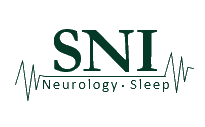Our Services
SNI provides the full spectrum of neurological and sleep care in the community setting. It avails of the latest neurophysiologic and neuroimaging diagnostic technology and neuropsychological testing. It recognizes the many comorbidities and associated complications seen in both neurological and sleep disorders. It attempts to look for single or multiple causes of our patient’s symptoms and looks at the comprehensive care of our patients. It prioritizes nonpharmacological approaches but recognizes the role of pharmacological treatments. Its aim is patient involvement and empowerment, and hopes to positively channel the patient’s own healing capability. It also acknowledges occasional needs for multi-specialty care and coordinates the appropriate referral and long term care. It offers both single specialty and general neurological and sleep care.
SNI NEUROLOGY CENTER
SNI General Neurology and Specialty Programs/Clinic
SNI Sleep Center
SNI Diagnostic Services
The neurophysiological and sleep diagnostic services are available for direct referrals
